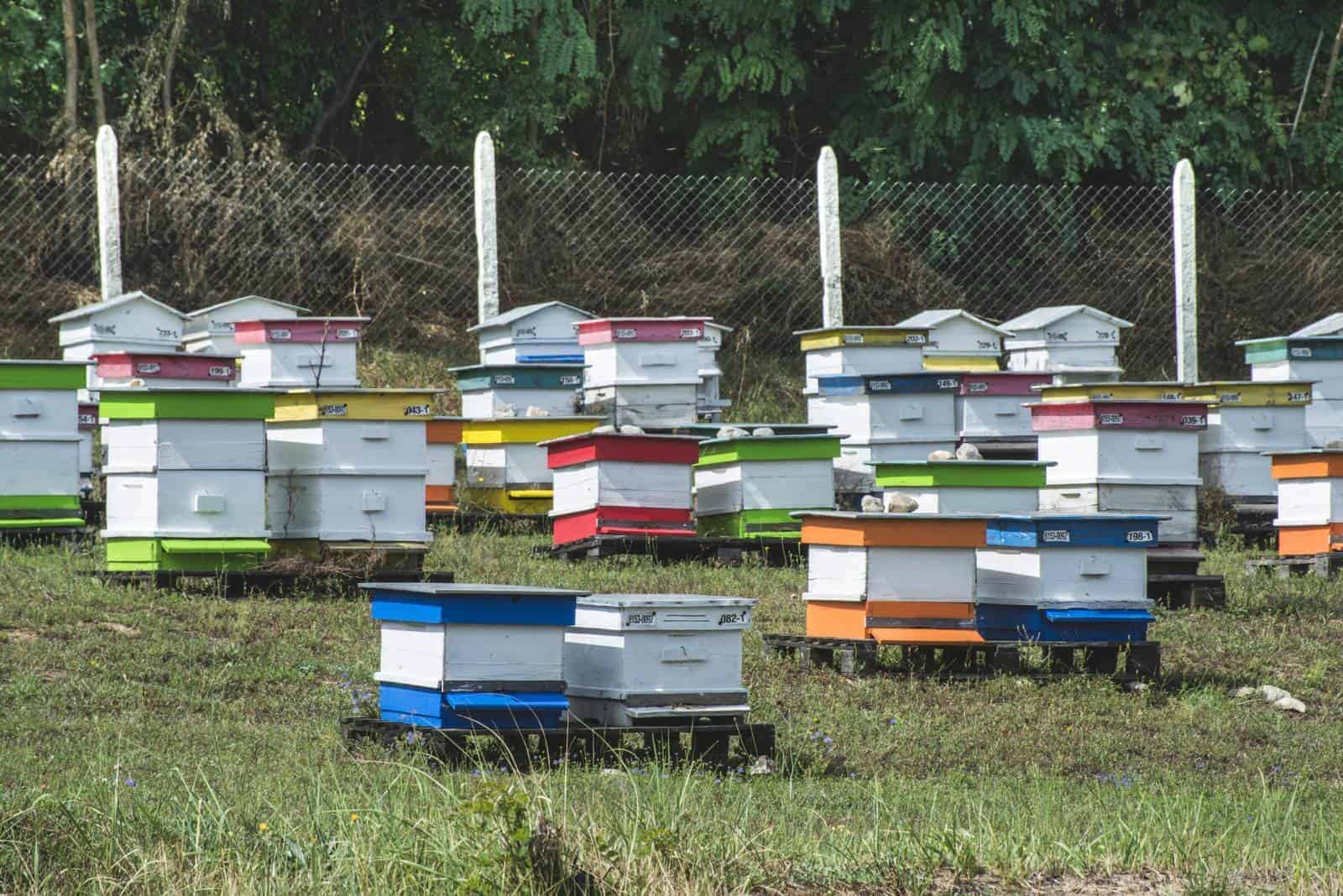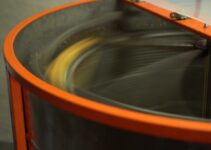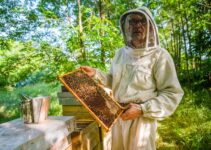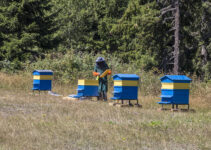Beekeeping is an increasingly popular endeavor, hobby, or even profession today because of how fulfilling it is to take care of the world’s most amazing insects (in my opinion anyway!). But while we often refer to this profession as “beekeeping”, not all of us are aware of what beekeeping is officially called. So, what is the official name for honey bee farming or for beekeeping?
The official name for beekeeping, which involves honey bee farming, is apiculture. Its name comes from the honey bee’s genus, which is Apis. Putting it together with “culture”, we get apiculture. As such the dictionary definition of apiculture is “the scientific method of rearing honey bees”.
Apiculture isn’t a word you tend to hear very often because of how much easier it is to say “beekeeping” or “honey bee farming”. Nevertheless, it still is the official name used for those who are in the honey bee farming industry. And if you ever find apiculture interesting enough, you may even end up calling yourself an apiarist in the future.
What is honey bee farming called?
We all love honey, which is that sweet natural and organic nectar that we tend to put in all sorts of different drinks and dishes. Most of us know for a fact that honey comes from honey bees. But, of course, people who sell honey don’t just get the honey from random beehives they see in the wild. Instead, they actually get honey from honey bee farms that are exclusively there to produce honey and other honey bee-related products such as beeswax.
Honey bee farming is actually growing in popularity these days because it is something that a lot of people can do with whatever free time they have. So, even if someone is working full-time, he or she can start a honey bee farm and become a beekeeper of a few hives, as taking care of a few hives won’t take a ton of your time. Of course, the profit you get from selling honey and other related products and the satisfaction you get from taking care of these uniquely charming insects also entices people to get into honey bee farming.
Whether you are a honey bee farmer on a part-time basis or on a professional level, this endeavor is pretty much a fulfilling field. But did any of you ever think about what honey bee farming is actually called? Does honey bee farming even have an official name?
Most of the people who are still outsiders when it comes to the field of honey bee farming probably often call this endeavor or field “honey bee farming” or “beekeeping”. The latter is usually the term used for this profession as it is quite easy to remember the field of rearing and taking care of honey bees as beekeeping. In fact, the more popularly used name for this field regardless of whether you are familiar with beekeeping or not is actually beekeeping.
But did you know that beekeeping or honey bee farming actually has an official name? Yes, the field of rearing and taking care of honey bees has an official name that is not as widely used as beekeeping but it is still the official name of the field, nonetheless.
So, the official name of honey bee farming, which falls directly under beekeeping, is actually apiculture. The word apiculture comes from two root words, which are Apis and culture or culturing. Apis, which is a Latin word, is the name of the genus that honey bees belong to while culture or culturing essentially means to take care or to rear. When you put them both together, we get apiculture.
The Merriam-Webster dictionary even defines apiculture as “the keeping of bees especially on a large scale”. So, in that regard, when you are taking care of bees for the purpose of commercial sale, you are essentially in the field of apiculture. And because most of the people who take care of bees are actually rearing or keeping honey bees (because all other bees don’t produce honey), the field of honey bee farming also falls under the umbrella of apiculture.
A fancy way of using the term apiculture in relation to those who are in the field is apiarist. So, if you are someone who is in the field of honey bee farming or beekeeping, you can actually call yourself an apiarist. The Merriam-Webster dictionary has even acknowledged the word apiarist as meaning “beekeeper” when you go by how the dictionary defines it.
What is the study of beekeeping called?
But what about those who are studying beekeeping or just simply studying bees, in general? Is studying beekeeping or bees still called apiculture?
So, for those who are wondering about that, the answer is no. Those who are in the field of studying bees are actually involved in melittology, which is also called apicology. The term comes from the Greek word melitta, which means bee. And if you were to use the Latin term for bee, you get the word apicology, which essentially means the study of bees.
We can also go down deeper into the study of honey bees. In melittology or apicology, there is a subdivision that is dedicated entirely to the study of honey bees and not simply bees, in general. We call that subdivision apiology.
Essentially, the study of honey bees or bees, in general, is different from the art of beekeeping. Melittology or apiology are fields that focus on studying bees or even beekeeping. Meanwhile, apiculture is more focused on rearing and taking care of bees instead of studying them. In a sense, apiculture becomes the practical side of apiology, as those who are taking care of bees are able to do so thanks to the studies that were done regarding the nature and habits of bees.
What’s another name for a beekeeper?
While “beekeeper” is the popularly used term for describing someone who is in the field of farming honey bees or taking care of them, there are also some other names to describe the people who are in this profession.
As we have mentioned, an apiarist is someone who is in the field of apiculture. We can also call these people apiculturist, which essentially means the same but is a bit longer than apiarist. But the most non-technical term to call beekeepers is “honey farmers”.
Is beekeeping considered farming?
If you have noticed, we have been referring to beekeeping as honey bee farming as an alternate description. That’s because those who are beekeepers often do so to farm honey from the bees. But is beekeeping actually considered farming?
As a matter of fact, yes, beekeeping is actually farming. Beekeeping falls under agriculture in terms of its definition and practical use. In fact, the Federal government even recognizes beekeeping as agriculture when you look at the regulatory laws and tax codes that govern the field of beekeeping.
However, let us go by the dictionary definition of what agriculture is. The Merriam-Webster dictionary defines agriculture as “the science, art, or practice of cultivating the soil, producing crops, and raising livestock and in varying degrees the preparation and marketing of the resulting products.”
So, if we were to connect the definition of agriculture to what we know about beekeeping, we can say that bees fall under livestock, especially because the National Organic Standards Board includes bees under the umbrella definition of livestock. And because beekeeping includes and involves the preparation and marketing of honey and other similar honey-related products, then it falls under the definition of what agriculture is.
In short, those who are in the field of beekeeping are also farmers both by definition and by practice. It is a different kind of farming that doesn’t involve the usual type of farming you may be picturing when you hear the word “farm”. Nonetheless, you should very well understand that beekeeping is still covered by agriculture or farming.
The role of beekeeping in agriculture?
We have talked about how beekeeping is essentially still agriculture and is very much considered farming when you look at the definition of what agriculture is and relate the very same definition to what beekeeping is. But did you know that beekeeping also plays a huge role in agriculture?
Bees are the world’s best pollinators and are often called the most important insects in the entire world due to how essential they are in pollinating plants. The reason is that bees are so active when it comes to hopping from one plant to another while carrying the pollen of these plants as they themselves collect pollen and nectar from all sorts of different plants. By doing so, they unknowingly pollinate different plants, which allows these plants to propagate.
In fact, bees are so important in agriculture that the FDA recognizes that more than 90 crops grown in the US rely on bee pollination. This essentially means that bees are partly responsible for putting food on the table of Americans and perhaps the rest of the entire world as well.
That’s why, in agriculture, many different farmers actually rely on beekeepers for pollination by borrowing their hives so that they can help improve their crop yield and produce more crops in the future. So, if you thought that beekeeping only involves producing and selling honey and other related products, you should know that this endeavor involves more than just that sweet nectar but actually plays a role in the greater scheme of things. That is why bees are regarded as the most important insects in the entire world.
Beekeepers can make a decent side income from renting bees to farmers! Certainly if you live in an agricultural based area of America!
Sources:
https://www.sciencedirect.com/topics/earth-and-planetary-sciences/apiculture
https://byjus.com/biology/apiculture-beekeeping/
https://www.beekeepingfornewbies.com/beekeeping-is-agriculture/




